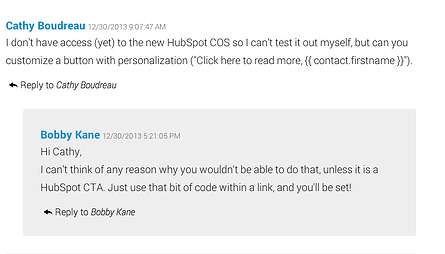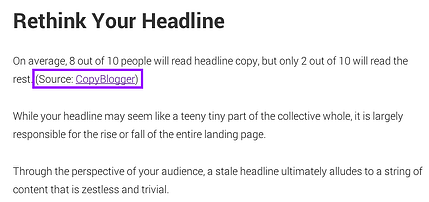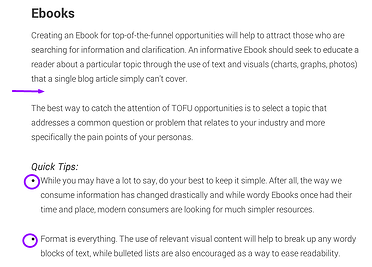Topics:
Content MarketingSubscribe now and get the latest podcast releases delivered straight to your inbox.
 While many businesses have adopted a less buttoned-up approach to interactions and endeavors, manners still matter.
While many businesses have adopted a less buttoned-up approach to interactions and endeavors, manners still matter.
Much like placing your napkin on your lap, or avoiding talk of politics at a cocktail party, proper etiquette should play a prominent role in your business blogging efforts.
If we keep trucking down the path we're on, it will only be a matter of time until we're all justifying sweatpants as real pants and Facebook shout outs as the proper way to wish a friend a happy birthday. Scary, isn't it?
So before we all lose sight of common courtesy as a whole, I think it's about time that we dust off that old, antiquated guide to etiquette.
It's time that we start treating our audience with a bit more consideration. In a competitive marketplace, businesses who follow these 5 business blogging etiquette rules will be the ones who get noticed.
Write For Your Audience, Not Yourself

If you're writing self-serving content, be prepared for it to flop.
Many times I find that I talk myself out of potential blog topics that seem "too introductory", I mean, I know the answer, so everyone else must know it too, right?
Wrong.
Business blogging isn't so much what you feel like writing about that day, but rather it's more about what you audience wants to read.
But how do you uncover what it is that your audience wants to read? Research.
Q&A sites like Yahoo Answers, Google Trends, and even your social media platforms have proven their ability to connect bloggers to relevant topics time and time again, so consider looking into one of them before your next post.
While we're on the subject of writing for your audience, be sure to avoid over complicated industry jargon. Contrary to popular belief it won't make you sound smarter, it will just confuse your audience and persuade them to seek information elsewhere (Please! No. Don't go!)
Don't Overlink

Don't get me wrong, sprinkling your content with relevant links is a vital part of the blog optimization process.
Linking back to older posts will help you to drive your point home, while driving people back to posts that could use the traffic. Links that contain keywords will help you improve your search rank, and they help Google crawl your site. However, sometimes too much of a good thing becomes a bad thing.
You want your internal links to be relevant, and serve a greater purpose. Linking every other word for no rhyme or reason will not just disrupt your writing, but it won't settle well with your reader.
When readers click on links, it's likely that they're looking for clarification and more information. If the link directs them to an irrelevant blog post, they're going to feel mislead and perhaps lose trust in your business.
Additionally, be sure that any links you insert are set to open in their own tab or window. Links that redirect within the same window will steer traffic away from the blog post at hand before they even finish reading.
Respond to Comments

Every time I receive a positive blog comment, I take a moment to enjoy the fruits of my labor. The fact that my message evoked a positive reaction from someone else is rewarding for sure, but how about a negative one?
Rather than pout about it, I've started to take negative blog comments with stride. After all, any feedback is good feedback, and each negative comment I receive can be used to inform and improve my future posts, right?
The point is, whether it's good, bad, or ugly, blog comments shouldn't go unanswered.
Whoever these commenters may be, they're the ones responsible for driving your blog traffic every month and they deserve some recognition.
If they've presented you with a question, answer it. This simple gesture will help to position you and your business as both credible and authoritative.
If you're wrong, admit your wrong. If you're unsure of what they mean, ask for clarification. Use their name and speak in a language that they understand. It's really that simple.
Give Credit Where Credit is Due

Plagiarism is a slippery slope. If you're going to reference someone else's work within your own, be our guest, but don't forget to give them the accreditation they rightfully deserve.
If you use a statistic you found on someone else's blog, attach a link back to the article in which you found it. Not only is this proper etiquette, but it helps to provide a path for readers who may be looking for more information that aligns with that particular statistic.
Additionally, including a link back to the original source will also help to improve the credibility of a stat or quote. I don't care how compelling a statistic is, if I can't find a source, I'm not going to risk misinforming my audience.
The same can be said for photo usage. If you're looking for someone to empathize with about the trials and tribulations of finding high-quality images for your blog posts, you're barking up the right tree.
Just because an photo turns up in Google images doesn't make it fair game. In fact, unless an image or website clearly states that you have the right to use their images without the need to pay royalties or a licensing fee, don't even go there.
Even when you use images from a royalty-free site, make sure that you include a link back to the original source.
Break Up Your Copy

Nobody sits down to a blog post and expects to read a 500 page novel, it just doesn't work that way. The format of your blog posts, like the content, should align with your audience's behavior and interests.
Keep it simple. While you want to be sure that you're providing as much value as possible, lengthy blog posts are being trampled by the demand for more digestible, to-the-point content.
Tightening up your content doesn't mean getting rid of important details, but simply finding the best possible way to present your information to ensure that people will actually read it. This means using bulleted lists to break up bulky information, and rereading your work a time or two to uncover places where you could insert a break.
Delete the fluff, keep the good stuff.


Order Your Copy of Marcus Sheridan's New Book — Endless Customers!

